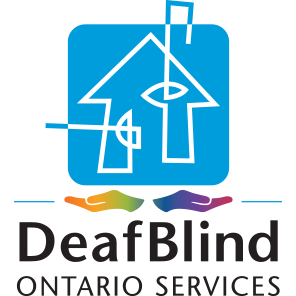Accessibility Statement of Commitment
DeafBlind Ontario Services is committed to treating all people in a way that allows them to maintain their dignity and independence. We are committed to meeting the needs of people with disabilities in a timely manner, and will do so by preventing and removing barriers to accessibility and meeting accessibility requirements under the Accessibility for Ontarians with Disabilities Act (AODA).
Multi-Year Accessibility Plan
DeafBlind Ontario Services has created a plan to guide our way forward in becoming completely accessible. Please download the Multi-year Accessibility Plan.
For More Information
For more information on our accessibility policy and procedures, please contact us by phone at 1-855-340-3267 extension 228 or email us at [email protected].
Accessible formats of our accessibility policies and procedure are available free upon request.
Customer Service Procedures
Providing Services to People with Disabilities
Definitions:
Persons with Disabilities
Any person that has a disability as defined under the Ontario Human Rights Code (e.g. Person with a Visual Impairment, Person with a Hearing Impairment, etc.).
Service Animals
Animals specially trained to assist a person with a disability.
Support Persons
Any person that accompanies and assists a person with a disability.
Employee
As it related to training on this policy includes: Senior Managers, Managers, Administrative Employees, Office Volunteers, Board of Directors and Board Committee members.
Providing services to people with disabilities
DeafBlind Ontario Services is committed to excellence in serving all customers including people with disabilities and we will carry out our functions and responsibilities in the following areas:
- Communication
We will communicate with people with disabilities in ways that take into account their disability. We will train employee* who communicate with the general public on how to interact and communicate with people with various types of disabilities. - Telephone services
We are committed to providing fully accessible telephone service to our customers. We will train employee* to communicate with customers over the telephone in clear and plain language and to speak clearly and slowly. We will offer to communicate with customers by other means, [e.g. e-mail, large print, relay services] if telephone communication is not suitable to their communication needs or is not available. - Assistive devices
We are committed to serving people with disabilities who use assistive devices to obtain, use or benefit from our services. We will ensure that our employee are trained and familiar with various assistive devices that may be used by customers with disabilities while accessing our services. Worksite accommodations to ease the use of any assistive devices will be made. - Notice of Disruptions in Service
If possible, notify all scheduled customers of any disruptions in service. - Use of service animals and support persons
We are committed to welcoming people with disabilities who are accompanied by a service animal on the parts of our premises that are open to the public and other third parties. We will also ensure that all employee*, volunteers and others dealing with the public are properly trained in how to interact with people with disabilities who are accompanied by a service animal. Employee will not distract or disrupt any service animal by touching, petting or talking to the animal.We are committed to welcoming people with disabilities who are accompanied by a support person. Any person with a disability who is accompanied by a support person will be allowed to enter DeafBlind Ontario Services’ premises with their support person. At no time will a person with a disability who is accompanied by a support person be prevented from having access to their support person while on our premises.
- Training for employees
DeafBlind Ontario Services will provide training to all employees, volunteers and others who deal with the public or other third parties on their behalf, and all those who are involved in the development and approvals of customer service policies, practices and procedures. Individuals in the following positions will be trained: Senior Managers, Managers, Administrative employees, Office volunteers, Board of Directors and Board Committee members. This training will be provided within 3-6 months after employee commence their duties.
Training will include the following:
- The purposes of the Accessibility for Ontarians with Disabilities Act, 2005 and the requirements of the customer service standard.
- How to interact and communicate with people with various types of disabilities.
- How to interact with people with disabilities who use an assistive device or require the assistance of a service animal or a support person.
- What to do if a person with a disability is having difficulty in accessing DeafBlind Ontario Services’ services.
- DeafBlind Ontario Services’ policies, practices and procedures relating to the customer service standard.
*Applicable employee will be trained on policies, practices and procedures that affect the way goods and services are provided to people with disabilities. Employee will also be trained on an ongoing basis when changes are made to these policies and procedures.
Feedback process
The ultimate goal of DeafBlind Ontario Services is to meet and surpass expectations while serving customers with disabilities. Comments on our services regarding how well those expectations are being met are welcome and appreciated.
Feedback regarding the way DeafBlind Ontario Services provides services to people with disabilities can be made by e-mail, phone or fax. DeafBlind Ontario Services will accommodate the feedback process to meet individual customer’s needs if necessary.
All feedback will be directed to the Director of Development & Communications. Customers can expect to hear back in 24 hours. Complaints will be addressed according to complaint categories already established in our organization’s complaint process procedures.
Integrated Accessibility Standards Regulation
The Integrated Accessibility Standards Regulation encompasses four standards: Employment, Information and Communications, Transportation, and Design of Public Spaces. DeafBlind Ontario Services is not required to comply with the Transportation standard.
DeafBlind Ontario Services is committed to training employees and volunteers on Ontario’s accessibility laws and on accessibility aspects of the Ontario Human Rights Code that apply to persons with disabilities. Training will be provided in a way that best suits the duties of relevant employees, volunteers, and Board of Directors.
Employment
DeafBlind Ontario Services is committed to fair and accessible employment practices. We will notify the public and our employees that, when requested, we will accommodate disabilities during recruitment and assessment processes and when people are hired.
If needed, we will create an individual accommodation plan and/or workplace emergency information for any employees who have a disability. Our performance management, career development, and return-to-work processes will take into account the accessibility needs of employees with disabilities.
Information and Communications
DeafBlind Ontario Services is committed to meeting the communication needs of people with disabilities. When asked, we will provide information and communications materials in accessible formats or with communication supports. This includes publicly available information about our services.
DeafBlind Ontario Services will consult with people with disabilities to determine their information and communication needs.
We will ensure existing feedback processes are accessible to people with disabilities upon request. We will make our website and content conform with WCAG 2.0, Level AA by January 1, 2021.
Design of Public Spaces
DeafBlind Ontario Services will meet the Accessibility Standards for the Design of Public Spaces when building or making major modifications to public spaces. While our residential locations are not considered public spaces, our administrative offices are.
In the event of a service disruption, we will notify the public of the service disruption and alternatives available.


